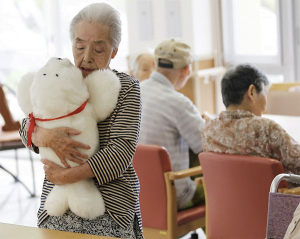
Dementia could be a general term for loss of memory, language, problem-solving, and alternative thinking skills that area unit severe enough to interfere with way of life caused by harm to or loss of nerve cells and their connections within the brain. Alzheimer’s disease} is that the commonest reason for dementia.
There is a spread of various Care Homes Solihull obtainable to decide on from. Some homes can cater to those needing residential care or medical care. they’re going to have a selected range of beds that area unit registered for medical care whereas their alternative bed’s area unit outlined as residential care solely. These beds area unit usually at intervals a similar facility however in numerous sections of the building.
What is dementia?
Dementia could be a collective term wont to describe numerous symptoms of psychological feature declines, like forgetfulness. it’s a signal of many underlying diseases and brain disorders. insanity isn’t one illness in itself, however a general term to explain symptoms of impairment in memory, communication, and thinking. whereas the chance of getting insanity will increase with age, it’s not a traditional part of ageing.
Causes dementia

Dementia is caused by harm to or loss of nerve cells and their connections within the brain. betting on the realm of the brain that is laid low with the harm, insanity will have an effect on folks otherwise and cause totally different symptoms.
Dementias area units usually sorted by what they need in common, like the supermolecule or proteins deposited within the brain or the part of the brain that is affected. Some diseases seem like dementias, like those caused by a reaction to medications or nutrient deficiencies, and that they would possibly improve with treatment.
Symptoms of dementia
- Recent amnesia – a symbol of this may well be asking a similar question repeatedly.
- Difficulty finishing acquainted tasks – as an example, creating a drink or cookery a meal.
- Problems act – problem with language; forgetting easy words or victimization the incorrect ones.
- Disorientation – obtaining lost on an antecedently acquainted street, as an example.
- Problems with abstract thinking – as an example, handling cash.
- Misplacing things – forgetting the situation of everyday things like keys, or wallets, as an example.
- Mood changes – sharp and unexplained changes in outlook or disposition.
- Personality changes – may be changing into irritable, suspicious, or fearful.
- Loss of initiative-showing less interest in beginning one thing or going somewhere.
Dementia types
- Alzheimer’s illness
- Dementia with Lewy bodies
- Mixed insanity
- Parkinson’s illness
- Huntington’s illness
- Frontotemporal insanity
- Normal-pressure hydrocephaly
- Posterior animal tissue atrophy
- Down syndrome
Dementia care homes
A care home should be registered as providing insanity care below the class. However, even at intervals in this class, there’s widespread variation. Most care homes can manage well with people who have less advanced insanity, WHO need help with consumption and daily living. people that area unit vulnerable to wandering or aggression can want a home with employees resident ratios making certain they’re safe and well cared for.
At the insanity care home, trained employees do “activities” with the persons with insanity, provide them meals, facilitate them to walk or exercise, and assist them with visits to the bathroom. Some centers give food whereas others expect that you just can send food to the person and that they can heat it and serve it to the person. Some centers give transport.
Dementia patients need a lot of intense level of care and observation than several others, and generally need terribly specialized care from insanity trained nurses. several delicate nursing facilities conjointly double up as insanity care homes and may give a level of care that merely can’t be offered during a regular residential home.
